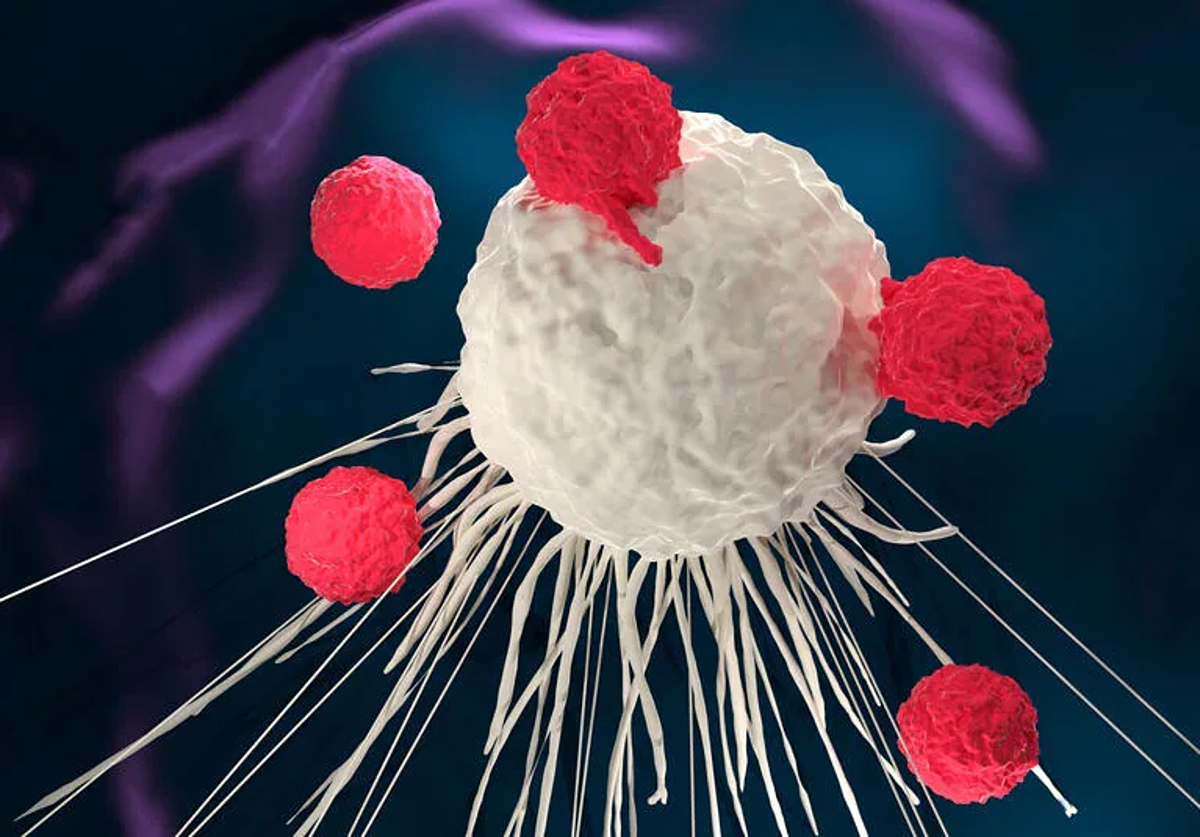Trials show that tumors shrank significantly after just 28 days. CAR-T therapy, an advanced immunotherapy, works by reprogramming T-cells in a patient's blood to recognize and destroy cancer cells. However, traditional methods require extracting cells from the patient, cultivating and genetically modifying them in a lab, and then reinfusing them. This process takes 3 to 6 weeks, is expensive, logistically complex, and can cost over 1 million CNY (approximately 139,200 USD).
The new solution, developed by experts from the Institute of Hematology, Union Hospital, Huazhong University of Science and Technology (Wuhan), overcomes these drawbacks by using a viral vector. This modified virus carries genetic material, locating and reprogramming T-cells within the body to express receptors that target cancer cells. The research team calls this an "off-the-shelf" product, rather than a treatment requiring individual customization.
 |
CAR-T cells (red) attacking cancer cells (white) in cancer immunotherapy. Photo: Science Photo Library |
CAR-T cells (red) attacking cancer cells (white) in cancer immunotherapy. Photo: Science Photo Library
In a phase one clinical trial, four patients with multiple myeloma, the second most common blood cancer, were intravenously administered the viral vector between 19/11 and 20/1. Instead of taking weeks, the new method reduced treatment time to 72 hours by eliminating intermediary steps like cell collection, cultivation, and pre-infusion chemotherapy.
As of 1/4, all four patients had completed two months of follow-up. Results showed two patients achieved complete remission, with tumor lesions disappearing; the other two also responded positively, with tumors shrinking significantly by day 28.
This research, published in early July in the medical journal Lancet, was hailed as a "milestone" by a cell therapy platform in China. The article emphasizes that if the technology is tested on a larger scale, treatment costs could be reduced by over 80%, changing the current CAR-T model.
This new direction isn't just attracting attention in China. Last June, Capstan Therapeutics, a California-based biotech company, also announced a gene delivery system to create CAR-T cells in vivo and observed tumor control capabilities in animals. This research was published in the journal Science.
Thuc Linh (Lancet)












